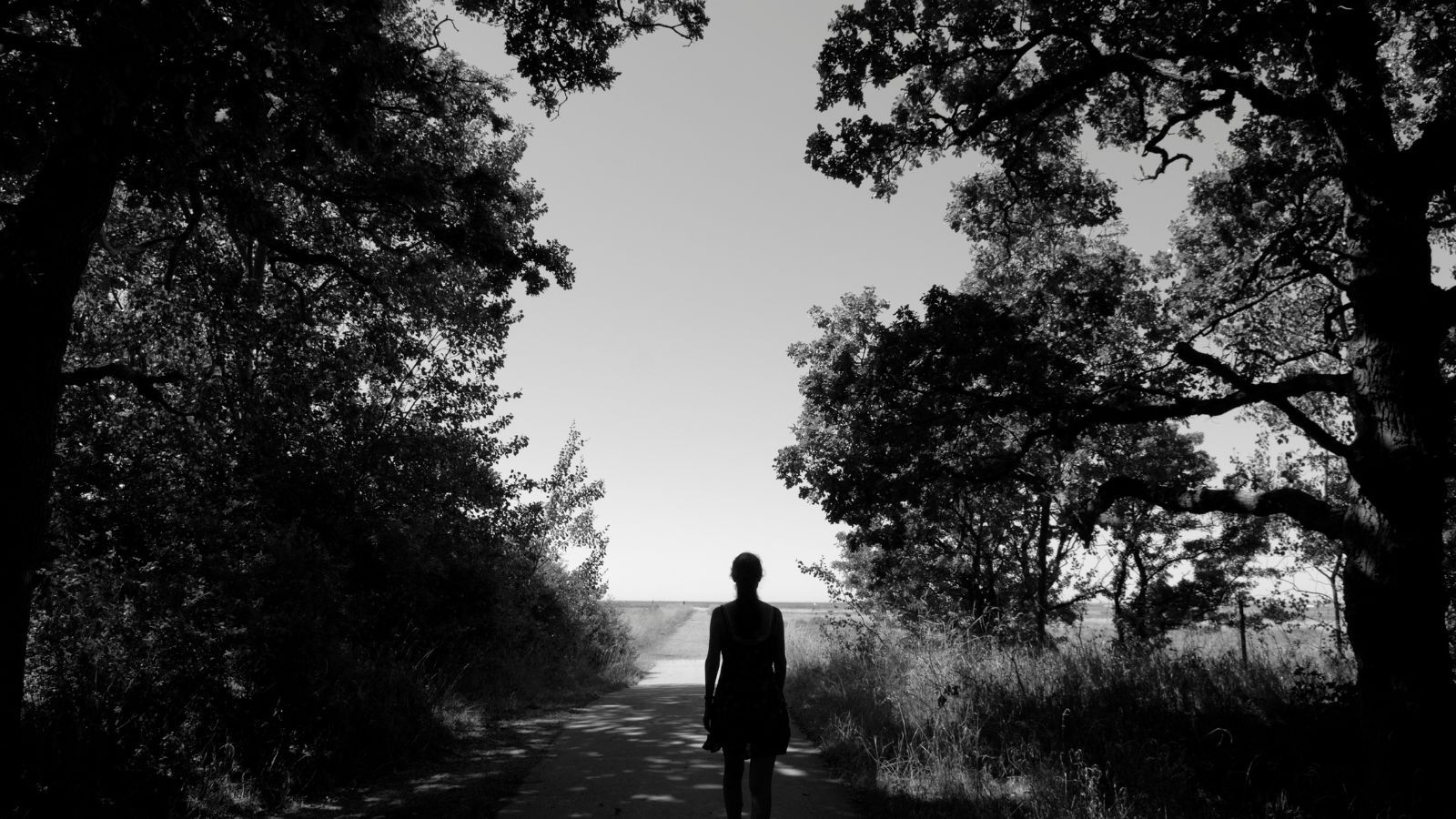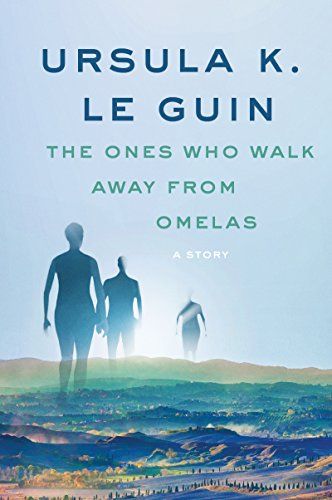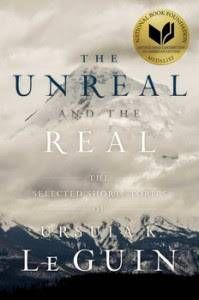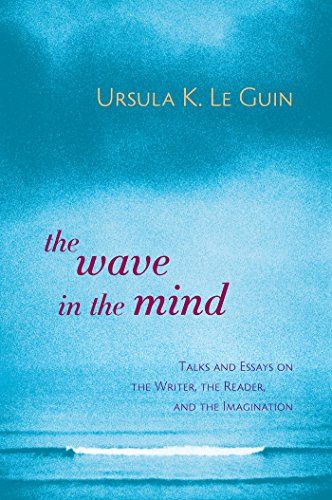Walking Away From Omelas: Connecting Ursula K. Le Guin’s Short Story to Our Current Political Climate
It was late spring in Tennessee, the kind of day that already felt like summer — temperatures in the low 90s and air dense with humidity and pollen. Towhees called to one another from trees lining the creek in my condo complex’s backyard. Despite the heat, my friends and I had gathered on my patio crammed with children’s toys to say goodbye. After a deluge of anti-LGBTQ+ legislation in Tennessee, they were leaving for Chicago, where they could, hopefully, be able to live their lives in more safety and with more freedom than they could here. This was not their first move in search of a more welcoming home. They’d originally moved to Nashville from rural Arkansas and Alabama. They joked with me that they were constantly moving farther north and that one day they’d wind up in Maine.
They’re not the first of my queer friends to leave or who are planning to leave, nor are they the first of my friends to have originally moved to Nashville from a less queer-friendly location. Nashville has been a typically queer-friendly place in the predominantly conservative South, but the state’s hate politics are turning it into yet another place where queer folk are no longer safe or free to be themselves.
Dreaming of Omelas
A week or two after they left, I dreamed of Omelas, the city in Ursula K. Le Guin’s short story “The Ones Who Walk Away from Omelas.” Before bed, I had mistakenly picked up my phone and began scrolling through social media, where I learned that Vanderbilt Medical Center had turned over transgender patients’ medical records to the state attorney general. I went to sleep horrified at Tennessee’s growing anti-trans and anti-LGBTQ+ legislation and what impacts that would have on friends and family.
I first dreamed of a witch hunt. I was searching for the people I knew wanted to burn a local witch, to convince them they were wrong to do so, and found a sphere that housed a council. People were streaming in and out of the sphere, so I entered as well, and a councilwoman told me I should leave, that I would be in danger if I stayed. I disregarded her and followed the line of people into a room where an open book revealed two charred ears, and the councilwoman told me that it was too late, the witch had already been burned, and that I would be next if anyone in line found out who I was. Not wanting to continue that particular dream, I forced myself awake, went to the bathroom as one does when you’re 40 and wake up at 4 a.m., and then went back to sleep.
My second dream that night was briefer. I was in Omelas. In the background, happy people celebrated, but I was not happy. I was with a small group of others, and we all stared into a dark room where a child was being tortured; then we turned around and left. We walked into a desert, but I didn’t know where to go. I just knew that I could no longer live in Omelas. I could no longer condone its continued torture of the child to support the superficial happiness of others. So I walked and walked and walked and grew thirstier and thirstier as I walked.
When I woke up, I knew that the Omelas in my dream was my current home. Though I normally don’t think much about my weird dreams, this one got to me, and I couldn’t stop thinking about Omelas. My spouse and I had already talked about leaving, but with our tiny savings, ill parents, medical concerns, a child, and lack of work prospects in other states, we could not pack up our things and leave very easily. We had decided to see what we could do with a plan to move in three to five years. My spouse was born and raised in middle Tennessee, and I have lived here since I was 5. It’s hard to imagine leaving, much less where we would go.
It is not so easy to be the ones who walk away with so many responsibilities.
Interpreting “The Ones Who Walk Away from Omelas”
Le Guin published “The Ones Who Walk Away from Omelas” in 1973, and it won a Hugo Award the following year. It was her third Hugo win and her first for a short story. She was inspired by an essay written by William James, “The Moral Philosopher and the Moral Life,” where he considers the origins and impulses behind human morality. In her introduction to The Real and the Unreal: Selected Stories, Vol. 2, she says her version of Williams’ premise, which also appears in The Brothers Karamazov by Dostoevsky, has had “a long and happy career of being used by teachers to upset students and make them argue fiercely about morality.” Which is exactly what I plan to do here.
I no longer remember the first time I read the story, but it was sometime in my early to mid-20s. I didn’t reread it until after having the dream. I remembered the story’s premise clearly — a city where everyone is happy, but that happiness depends on the torture of a single child. Most people learn to live with this and embrace their happiness, but a few cannot continue to live in a city that chooses such cruelty, and these people walk away from Omelas. The image of the child in a dark cellar deep within the city really struck me, and the story stayed with me despite the 15+ years since I had read it.
However, I’m a different person now, and my interpretations of the story were very different upon rereading it. I remember thinking that the ones who walked away from Omelas were heroes. They were the morally correct ones, making the hard but just ethical decision. They were the good guys, right? How could they be otherwise? I would’ve read this right around the time I was graduating with my undergraduate degree and starting to work in a used bookstore. I had yet to start a family and had only recently been diagnosed with a chronic illness, postural orthostatic tachycardia syndrome. While I was definitely an adult capable of critical thinking, I was still young and had yet to immerse myself in disability narratives and disability advocacy. I had yet to consider myself disabled. I had yet to start a family.
They are not making a moral statement. They are not being heroic. Instead of addressing the cause of their guilt, they leave. This is not the act of a hero.
My reaction to the story is quite different now. Instead of admiring the ones who walk away from Omelas, I am appalled by them.
Let me pause here to say that this is absolutely not an indictment of anyone choosing to leave their state due to legislation restricting their lives and their bodies. You are not the ones walking away from Omelas. You are fleeing for the human rights that are being denied to you. That is a necessary choice for survival.
The short story opens with the citizens of Omelas celebrating the Festival of Summer. Everyone is happy, everyone is always happy there, the narrator insists. The story does not follow a typical short story format. There are no individual characters, no dialogue. It’s more of a philosophical question wrapped up in a faulty utopia, where Le Guin’s work often shines. The narrator addresses the reader in describing Omelas, assuming the reader will be doubtful that such a happy place could exist and that if it did exist, the people in it would be quite uninteresting. “The trouble is that we have a bad habit,” the narrator explains, “encouraged by pendants and sophisticates, of considering happiness as something rather stupid. Only pain is intellectual, only evil interesting.”
While describing the many ways in which Omelas is a happy place and allowing the reader free reign in imagining such a place, the narrator adds, “One thing I know there is none of in Omelas is guilt.” Sensing the imagined reader’s doubts, the narrator discloses why Omelas can be such a happy place — a malnourished and abused child locked in a cellar. After a lengthy description of the child that uses such terms as “defective,” “feeble-minded,” and only refers to the child as an “it,” the narrator states that “[The people of Omelas] all know that it has to be there. Some of them understand why, and some do not, but they all understand that their happiness, the beauty of their city, the tenderness of their friendships, the health of their children, the wisdom of their scholars, the skill of their makers, even the abundance of their harvest and the kindly weathers of the skies, depend wholly on this child’s abominable misery.” Every Omelas child between 8 and 12 must visit this child to see what their happiness depends upon. The children feel disgusted and angry, but most come to see that exchanging the happiness of thousands for improving the life of one would not be ethical. In that way, they can live without guilt, feeling justified in the continuing child abuse.
But not everyone who comes to see the child can put away their guilt. These are the ones who walk away from Omelas. They can no longer live in Omelas, where a child is being abused. They cannot set aside their guilt. They are not making a moral statement. They are not being heroic. Instead of addressing the cause of their guilt, they leave. This is not the act of a hero.
Don’t get me wrong — escape is vital and valid. When victims leave abusive scenarios, they should run far and fast and never return. When potential victims see signs of abuse, they, too, should run far and fast. If the child had managed to find a way out of the cellar, they should absolutely leave Omelas immediately, even if that means happiness is lost for all or the city will choose another victim. That is not the child’s burden.
But what about everyone else? What about the ones who walk away without trying to make things better for the child?
Instead of staying and fighting against discrimination, they’d rather leave, and they have the resources to do so. Meanwhile, they leave those without the resources to move to bear the brunt of government-led discrimination.
Reading this story now as a disabled person and a mother makes me feel extremely icky. As a mom, it’s hard to imagine having any other response than picking this child up and leaving the city with the child. And even if that wasn’t a choice, why is no one protesting? Why is everyone going along with this? Why are people so complacent? How could anyone just leave that room?
Of course, it’s easy to say that when evil is right in front of you. You correct it right then and there. But what about more abstract evil that doesn’t immediately affect your day-to-day living? Much easier to ignore it, to put it toward the back of your mind.
The terms used to describe the child are inhumane, disturbing, and gross. Whether the child is disabled due to the abuse they receive or they were chosen to bear the burden of the city’s happiness because of their disability, the fact that they are disabled is a key factor in the city being able to put aside their guilt: “It is too degraded and imbecile to know any real joy,” people reason.
Discrimination against disabled people is rampant and often government-sponsored. Are they really disabled enough to receive benefits? Why am I paying for their vacation? They look fine. These are all comments I’ve seen and heard frequently. I recently read an article in The Nashville Scene about the need to make Nashville more accessible for disabled pedestrians. I learned that one of the first pedestrian deaths in the city this year was a visually impaired woman walking with her seeing-eye dog (the dog was uninjured). The city has never prioritized sidewalks or public transportation, making it incredibly difficult and dangerous for disabled Nashvillians to get around town.
To Walk Away Or To Stay
My dreaming self might’ve equated my situation in Tennessee with those of Omelas, but the differences are many. However, there are ways to connect the story with the current political climate. Nashville is not Omelas. While I love many things about Tennessee, it has never been a utopia. Its history is rife with violence and human rights violations, and it also has a rich history of advocacy and activism. It is the place where my parents live, the place where I met my spouse, the place where my daughter was born. In my dream, I equated Nashville with Omelas and the ones walking away as the ones leaving due to discrimination, but that’s not actually what is happening in Omelas. The ones leaving Omelas are not the victims of discrimination; they’re the ones who are uncomfortable with discrimination. Instead of staying and fighting against discrimination, they’d rather leave, and they have the resources to do so. Meanwhile, they leave those without the resources to move to bear the brunt of government-led discrimination.
Are red states becoming the “necessary evil” so liberal states can thrive? With conservatives leaving blue states for red, where taxes are often lower, even if it comes at the cost of healthcare and infrastructure, it makes me wonder if people in liberal states even care or if they’re relieved to be rid of those red voters. Our rights are being legally stripped away, but what is being done about it?
This isn’t to say people shouldn’t leave Tennessee for political reasons. I get it. I deeply get it; people need to feel comfortable and thrive wherever they live. My queer friends should feel no qualms about leaving. I am worried about the state’s future, though, which is already looking pretty dismal.
I wish Le Guin were still alive so I could read what she would say about current events, but then again, she’s already said so much. In her essay “A War Without End,” collected in The Wave and the Mind, she explains why she’s drawn to writing problematic utopias: “To me the important thing is not to offer any specific hope of betterment but, by offering an imagined but persuasive alternative reality, to dislodge my mind, and so the reader’s mind, from the lazy, timorous habit of thinking that the way we live now is the only way people can live. It is that inertia that allows the institutions of injustice to continue unquestioned.” (218) And let’s be clear, those institutions of injustice are active and thriving. Pieces that explore utopias and dystopias, like “The Ones Who Walk Away from Omelas,” are important because they allow the reader to imagine other ways of being, other ways of existing. Injustice does not have to be our reality, Le Guin argues with her huge body of work. If we can imagine a better future, then we can change it. But we have to be present to do so.
If you would like to donate to a local organization helping LGBTQ+ people in Tennessee, consider donating to The Tennessee Equality Project, the Oasis Center, or the ACLU-TN. If you’d like to read more books by Ursula K. Le Guin, check out my reading pathway.






